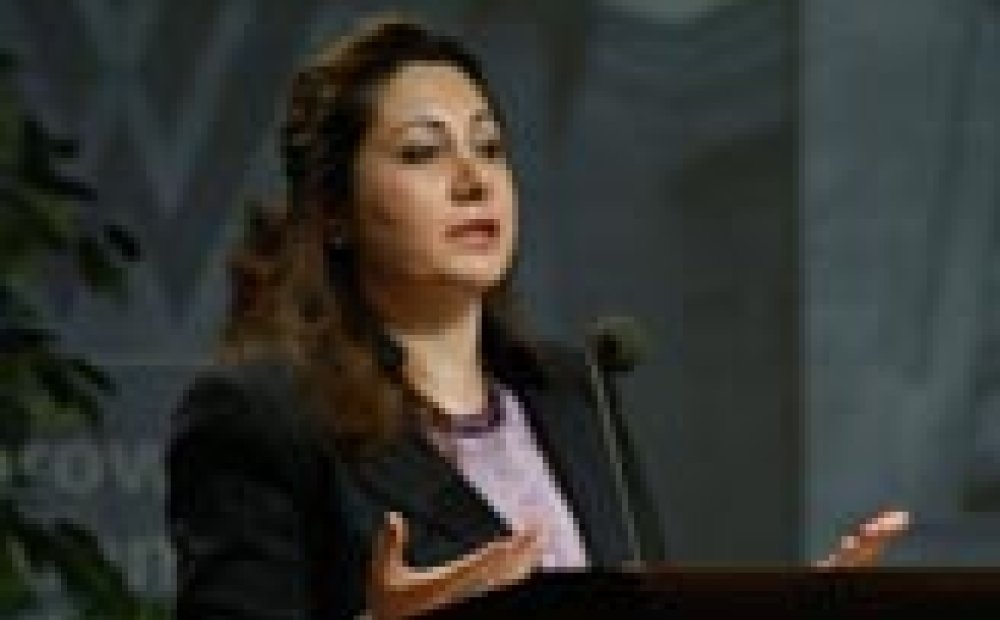Winning the Peace: Women's Role in Post-Conflict Iraq

Iraqi women leaders discussed the crucial role of women in post-conflict transition and reconstruction with international and U.S. policymakers at a forum on April 21-22, 2003. The conference was hosted by the Conflict Prevention and Middle East Projects of the Woodrow Wilson International Center for Scholars, and Women Waging Peace, a global initiative of women peace builders supported by the Hunt Alternatives Fund. Twenty-six Iraqi women participated in the meeting including expatriates from the United States, Europe, and the Middle East; among them was the first woman judge from Iraq. Several women also joined from Iraq, including the female Minister of Reconstruction and Development of Northern Iraq and the President of the Assyrian Women's Union in Iraq. More than 60 experts from key international and U.S. agencies including the World Bank, United Nations, U.S. Department of State, U.S. Department of Defense, U.S. Agency for International Development, and non-governmental organizations participated in discussions.
The Iraqi women participants, who represented different political, ethnic, and religious strata, worked with sector experts and policymakers to highlight the critical importance of women in building a democratic and prosperous Iraq. Over the course of the two days, in open and closed sessions, they reached a series of findings and conclusions regarding the best and most important ways to ensure full participation by women in the process of reconstruction, and to guarantee that women's particular concerns and needs are met. In particular, working groups focused on the issues of constitutional law and legislation, promotion of democracy and good governance, economic reform, and strengthening civil society.
A number of key conclusions and next steps were identified. In the legal domain, among other findings participants emphasized the need to create a constitution that defines and protects women's rights and interests through guarantees of equality and separation of powers, abolition of laws and decrees that violate human rights, mechanisms for transitional justice, and incorporation of the Universal Declaration of Human Rights and the Convention on the elimination of All Forms of Discrimination Against Women (CEDAW).
In discussing economic rights and empowerment, participants underlined the importance of recognizing and focusing on the needs of single heads of household, widows and women with medical and reproductive needs in providing humanitarian aid. Similarly, the immediate need to restore water and electricity to ensure security for women was noted. A gender needs assessment was recommended, as was the appointment of a gender focal point within the Office for Humanitarian Assistance and Reconstruction. The creation of a Ministry of Women's Affairs was also supported.
Several conclusions were also reached regarding ways to foster good governance and the revitalization of civil society. To promote good governance involving women, participants felt that given the diverse nature of Iraqi society, it would be important to appoint a leadership council that draws on men and women from all sectors and communities to lead the transition process over the coming months and perhaps year. In this way, no single group would dominate others, and there would be a clear signal to the population at large that Iraqi leaders from all groups support and promote an inclusive and plural democratic structure. The women felt very strongly that Iraqi women should be included in the governance structures at all levels. They called for decentralization and the development of community led structures in which women could participate. Many were strong advocates for a women's quota at all levels - ranging between 30 to 50%. Additionally, they concluded that the participation of women in reconstruction could be encouraged through earmarked funds for women's organizations and contractual obligations to involve women in projects.
To revitalize women's role in civil society, it was concluded that support would need to be ensured for women's organizations, particularly the strong, existing organizations in Northern Iraq. Additionally, capacity building might be undertaken for women working in non-governmental organizations, particularly those working in religious-based organizations. Finally, participants concluded that awareness raising among men and women regarding Iraqi women's capacities and needs could foster inclusion.
Hosted By

Middle East Program
The Wilson Center’s Middle East Program serves as a crucial resource for the policymaking community and beyond, providing analyses and research that helps inform US foreign policymaking, stimulates public debate, and expands knowledge about issues in the wider Middle East and North Africa (MENA) region. Read more
